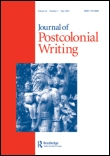
Journal of Postcolonial Writing
Scope & Guideline
Fostering Interdisciplinary Insights in Postcolonial Studies
Introduction
Aims and Scopes
- Exploration of Postcolonial Literature:
The journal focuses on literature emerging from postcolonial contexts, analyzing how these works reflect and critique colonial histories and contemporary socio-political issues. - Interdisciplinary Approaches:
Utilizing methodologies from literary studies, cultural studies, sociology, and history, the journal fosters interdisciplinary dialogues to deepen understanding of postcolonial narratives. - Diversity of Voices:
The journal emphasizes the importance of diverse voices from marginalized communities, including but not limited to African, Asian, and Indigenous literatures, showcasing a wide range of perspectives. - Critical Engagement with Theories:
Contributions often engage with theoretical frameworks such as postcolonial theory, feminist theory, and queer theory, enabling critical discourse around identity, representation, and power dynamics. - Contemporary Issues and Global Contexts:
The journal addresses contemporary issues such as migration, identity politics, climate change, and globalization, reflecting how these themes resonate within postcolonial literature.
Trending and Emerging
- Decolonization and Indigeneity:
Recent articles increasingly focus on decolonization processes and Indigenous narratives, exploring how these themes challenge dominant historical narratives and assert cultural sovereignty. - Intersectionality and Identity Politics:
There is a notable rise in discussions around intersectionality, examining how various aspects of identity—such as race, gender, and sexuality—intersect within postcolonial contexts. - Climate Change and Environmental Literature:
Emerging themes related to climate change and ecological crises are gaining traction, reflecting the urgency of environmental issues within postcolonial discourse. - Diasporic Narratives and Global Migration:
The journal has seen a surge in works addressing diasporic identities and the complexities of migration, highlighting the fluidity of cultural identities in a globalized world. - Digital Humanities and Technology:
The intersection of literature with digital humanities is becoming more prominent, as scholars explore how technology impacts narratives and representations in postcolonial contexts.
Declining or Waning
- Traditional National Literatures:
There has been a noticeable decline in articles focused solely on traditional national literatures, as the journal increasingly emphasizes transnational and diasporic narratives. - Historical Focus on Colonial Narratives:
While colonial histories remain important, there is a waning interest in purely historical analyses of colonial literature, with a greater focus now on contemporary implications and intersections. - Eurocentric Perspectives:
The journal has shifted away from Eurocentric literary analyses, moving towards more inclusive global perspectives that prioritize voices and narratives from the Global South. - Static Literary Canon Discussions:
Debates centered around static definitions of the literary canon are becoming less frequent, as the journal embraces more fluid and dynamic understandings of literary value and relevance. - Formal Literary Criticism:
There is a decreasing trend in formalist literary criticism, with more emphasis placed on socio-political contexts and lived experiences rather than solely on textual analysis.
Similar Journals
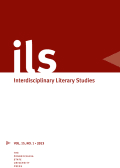
Interdisciplinary Literary Studies
Exploring the Boundaries of Literary ScholarshipInterdisciplinary Literary Studies is a prominent journal published by Penn State University Press that delves into the rich and diverse field of literature and literary theory. Established to foster scholarly dialogues, this journal embraces an interdisciplinary approach, making it a valuable resource for researchers, practitioners, and students interested in the multifaceted dimensions of literature. With an ISSN of 1524-8429 and an E-ISSN of 2161-427X, the journal operates without open access, reflecting its commitment to maintaining rigorous academic standards. The journal is ranked in the Q3 quartile of literature and literary theory for 2023 and holds a Scopus rank of #730 out of 1106, placing it in the 33rd percentile, which further emphasizes its emerging stature within the academic community. Spanning converged years from 2017 to 2024, Interdisciplinary Literary Studies continues to impact the dialogue within the humanities, encouraging nuanced analyses and interdisciplinary connections that push the boundaries of literary scholarship. Set in the United States, the journal is dedicated to exploring contemporary and historical texts, critical theories, and diverse literary forms, making it an essential publication for anyone passionate about the evolving landscape of literature.
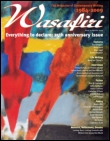
Wasafiri
Challenging paradigms in the humanities since 1984.Wasafiri, published by Routledge Journals, Taylor & Francis Ltd, stands as a pivotal platform in the fields of Cultural Studies and Literature and Literary Theory. With a proud publication history extending from 1984 to 2024, this esteemed journal delivers critical insights and cutting-edge research that explore the intersections of culture, literature, and global discourse. Renowned for its academic rigor, Wasafiri holds a Q3 ranking in both its categories as of 2023, showcasing its solid contributions to the scholarly community, reflected in its respectable Scopus rankings—evidencing its relevance and authority, particularly in the literature field. While available through subscription, the journal emphasizes the dissemination of diverse voices and innovative scholarship, appealing to researchers, professionals, and students eager to deepen their understanding of contemporary cultural narratives. Positioned in the United Kingdom, Wasafiri continues to foster vibrant dialogues that challenge conventional paradigms, making it an invaluable resource for anyone engaged in the humanities.
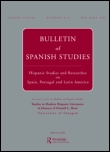
Bulletin of Spanish Studies
Showcasing Peer-Reviewed Research in Spanish StudiesBulletin of Spanish Studies is a prominent academic journal dedicated to the exploration and discourse of Spanish studies within the diverse realms of Cultural Studies and Literature and Literary Theory. Published by Routledge Journals, Taylor & Francis Ltd, this journal serves as a crucial platform for scholars, researchers, and students to disseminate their findings and engage in scholarly debates related to Spanish literature, culture, and linguistics. With an emphasis on high-quality, peer-reviewed research, the journal holds a reputable Q3 ranking in Cultural Studies and a commendable Q2 ranking in Literature and Literary Theory, reflecting its significant impact within the academic community. The Bulletin is indexed in notable databases, achieving a rank of #314 out of 1106 in Literature and Literary Theory and #738 out of 1304 in Cultural Studies, signaling its vital role in advancing knowledge in these fields. Although it does not currently offer open access options, the journal remains an essential resource for those passionate about the study of Spanish culture and literature from 2010 to 2024 and beyond.

CANADIAN LITERATURE
Connecting Scholars to the Heart of Canadian LiteratureCanadian Literature is a distinguished journal published by the University of British Columbia, dedicated to exploring the rich landscape of Canadian literary studies. With its strong impact in the field, evidenced by its Scopus ranking of #197 out of 845 in the category of Arts and Humanities, specifically in Literature and Literary Theory, this journal serves as a pivotal platform for both emerging and established scholars. Covering a wide range of topics related to Canadian literature and culture, it aims to foster an interdisciplinary dialogue that reflects the diverse voices and narratives shaping the literary scene in Canada. Though the journal transitioned its coverage in Scopus after 2019, it continues to provide valuable insights and critical discourse in its publications. Researchers, students, and professionals looking to deepen their understanding of Canadian literature will find Canadian Literature an essential resource for contemporary scholarship.
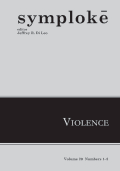
Symploke
Exploring the Intersections of ThoughtSymploke, published by University of Nebraska Press, is a leading interdisciplinary journal in the fields of literary and cultural studies that aims to foster dialogues across a diverse range of scholarly perspectives. With its ISSN 1069-0697 and E-ISSN 1534-0627, the journal is committed to publishing high-quality research that examines the intersections of literature, philosophy, and social theory. As a prominent platform for innovative scholarship, Symploke plays a crucial role in advancing critical discourse, making it an essential resource for researchers, professionals, and students alike. The journal provides unrestricted access to its valuable content, thereby ensuring the dissemination of knowledge without barriers. With an emphasis on in-depth analyses and theoretical contributions, Symploke continually seeks to expand the horizons of contemporary thought and offers a vital forum for voices within the academic community.

Wenshan Review of Literature and Culture
Bridging Disciplines, Enriching PerspectivesWenshan Review of Literature and Culture, an esteemed journal published by NATIONAL CHENGCHI UNIVERSITY in Taiwan, serves as a vital platform for interdisciplinary scholarship in the realms of literature and cultural studies. With its ISSN 2077-1282 and E-ISSN 2077-1290, this journal aims to engage researchers, professionals, and students alike in critical discourse while significantly contributing to the academic community's understanding of contemporary literary and cultural phenomena. As of 2023, it holds a respectable position in Q4 for Cultural Studies and Q3 for Literature and Literary Theory, reflecting its growing influence within these disciplines. Although it operates under a non-open access model, the journal's commitment to quality research is evident in its rigorous peer-review process and dedication to publishing innovative ideas. By converging diverse perspectives from 2016 through 2024, the Wenshan Review not only fosters a deeper understanding of its subjects but also acts as a bridge connecting scholars from various backgrounds to share their insights more broadly and effectively.

Interventions-International Journal of Postcolonial Studies
Unpacking the Complexities of Identity and Power.Interventions - International Journal of Postcolonial Studies, published by Routledge Journals, Taylor & Francis Ltd, stands at the intersection of anthropology and history, providing a crucial platform for scholarly discourse in the field of postcolonial studies. With a commendable impact, as indicated by its Q2 ranking in Anthropology and Q1 ranking in History for 2023, the journal serves a diverse audience of researchers, professionals, and students seeking to engage with critical analyses of colonial legacies and their contemporary implications. Covering an array of topics from 2010 to 2024, Interventions upholds a high academic standard, reflected in its notable rankings on Scopus. Despite not offering an open-access model, the journal remains an essential resource for academics committed to exploring the multifaceted dynamics of postcolonial theory and its applications across various disciplines. By fostering insightful dialogue and innovative research, Interventions contributes significantly to the global understanding of postcolonial issues and the complexities surrounding identity, culture, and power.
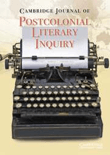
Cambridge Journal of Postcolonial Literary Inquiry
Illuminating the intersections of culture, history, and literature.Welcome to the Cambridge Journal of Postcolonial Literary Inquiry, a leading academic journal published by Cambridge University Press, dedicated to exploring the intricate intersections of postcolonial studies, literature, and history. With its ISSN 2052-2614 and E-ISSN 2052-2622, this journal has emerged as a vital resource for researchers, professionals, and students interested in the evolving narratives and theoretical frameworks shaped by postcolonial contexts. Operating since 2014 and spanning until 2024, it holds a commendable position in the academic community, reflected in its Scopus rankings, including a 76th percentile in Literature and Literary Theory. While the journal does not provide open access options at this time, it offers comprehensive insights that contribute significantly to the discourse surrounding cultural studies and historical perspectives. With categories in the Q3 and Q2 quartiles for Cultural Studies and Literature, it remains a crucial space for innovative scholarship, fostering intellectual engagement with the themes of identity, power, and resistance represented in postcolonial literature.

Anclajes
Illuminating the Intersections of Culture and LanguageAnclajes is a prominent academic journal dedicated to the fields of Cultural Studies, Linguistics, and Literature, published by the UNIV NACIONAL LA PAMPA, FAC CIENCIAS HUMANAS. With both print (ISSN 0329-3807) and electronic (E-ISSN 1851-4669) formats, the journal has embraced an Open Access model since 2010, greatly enhancing its accessibility and reach to a global audience. Based in Argentina, Anclajes provides a platform for innovative research and critical discourse, contributing significantly to the understanding of cultural phenomena and literary theories. In recent years, the journal has established itself with a Scopus rank placing it in the top 30% of Literature and Literary Theory and the top 57% of Cultural Studies, as indicated by its quartile rankings for 2023. With issues converging from 2012 to 2024, Anclajes continues to foster scholarly communication and serves as an essential resource for researchers, students, and professionals seeking to explore the dynamism of human culture and expression.

ENGLISH STUDIES IN AFRICA
Fostering Critical Dialogue in English StudiesENGLISH STUDIES IN AFRICA is a premier journal dedicated to advancing the field of literature and literary theory, published by Taylor & Francis Ltd, a leading name in academic publishing. With a focus on the intersection of English studies and African contexts, the journal has been a vital platform for over six decades, contributing to an enriched understanding of literary culture within the African diaspora from 1958 to 2024. While its impact factor is not explicitly listed, its Scopus rank of 146 out of 1106 journals in the category places it within the top 14% of its field, reflective of its significant scholarly contribution and rigorous peer-review process. As an essential resource for researchers, professionals, and students alike, ENGLISH STUDIES IN AFRICA fosters critical dialogue and interdisciplinary collaboration, making it a cornerstone for ongoing literary exploration and research in the region.